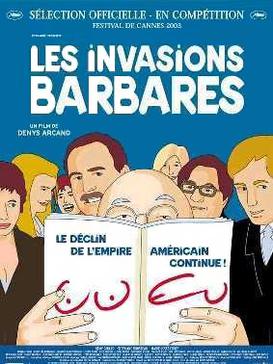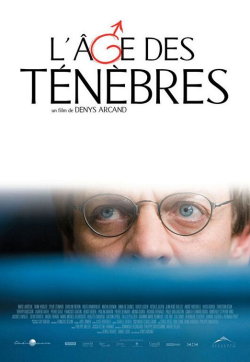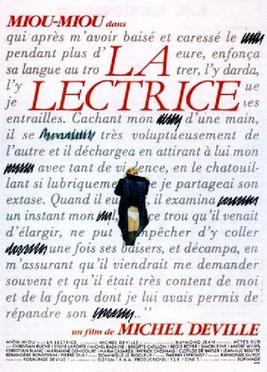Related Research Articles

The Barbarian Invasions is a 2003 Canadian-French sex comedy-drama film written and directed by Denys Arcand and starring Rémy Girard, Stéphane Rousseau and Marie-Josée Croze. The film is a sequel to Arcand's 1986 film The Decline of the American Empire, continuing the story of the character Rémy, a womanizing history professor now terminally ill with cancer.

Georges-Henri Denys Arcand is a Canadian filmmaker. During his four decades career, he became one of the most internationally-recognized director from Quebec, earning widespread acclaim and numerous accolades for his "intensely personal, challenging, and intellectual films."

Jesus of Montreal is a 1989 Canadian comedy drama film written and directed by Denys Arcand, and starring Lothaire Bluteau, Catherine Wilkening and Johanne-Marie Tremblay. The film tells the story of a group of actors in Montreal who perform a passion play in a Quebec church, combining religious belief with unconventional theories on a historical Jesus. As the church turns against the main actor and author of the play, his life increasingly mirrors the story of Jesus, and the film adapts numerous stories from the New Testament.

The history of cinema in Quebec started on June 27, 1896 when the Frenchman Louis Minier inaugurated the first movie projection in North America in a Montreal theatre room. However, it would have to wait until the 1960s before a genuine Quebec cinema industry would emerge. Approximately 620 feature-length films have been produced, or partially produced by the Quebec film industry since 1943.

Rémy Girard is a Canadian actor and former television host from Quebec.
Marie Lise Monique Émond, better known as Monique Mercure, was a Canadian stage and screen actress. She was one of the country's great actors of the classical and modern repertory. In 1977, Mercure won a Cannes Film Festival Award and a Canadian Film Award for her performance in the drama film J.A. Martin Photographer.

The Decline of the American Empire is a 1986 Canadian sex comedy-drama film directed by Denys Arcand and starring Rémy Girard, Pierre Curzi and Dorothée Berryman. The film follows a group of intellectual friends from the University of Montreal history department as they engage in a long dialogue about their sexual affairs, touching on issues of adultery, homosexuality, group sex, BDSM and prostitution. A number of characters associate self-indulgence with societal decline.

The Eighth Day is a 1996 Franco-Belgian comedy-drama film that tells the story of the friendship that develops between two men who meet by chance. Harry, a divorced businessman who feels alienated from his children, meets Georges, an institutionalised man with Down syndrome, after Georges has escaped from his mental institution and is nearly run over by Harry. The film was selected as the Belgian entry for the Best Foreign Language Film at the 69th Academy Awards, but was not accepted as a nominee.

Far Side of the Moon is a Canadian drama film, directed by Robert Lepage and released in 2003. The film is based on Lepage's eponymous play, which premiered in 2000.
Gabriel Arcand is a Canadian actor. He is the brother of film director Denys Arcand.

Orders is a 1974 Quebec historical drama film about the incarceration of innocent civilians during the 1970 October Crisis following the War Measures Act enacted by the Canadian government of Pierre Trudeau. It is the second film by director Michel Brault. It features entertainer and Senator Jean Lapointe.

Days of Darkness, also known as The Age of Ignorance, is a 2007 black comedy-drama film written and directed by Denys Arcand and starring Marc Labrèche, Diane Kruger and Sylvie Léonard. Presented as the third part of Arcand's loose trilogy also consisting of The Decline of the American Empire (1986) and The Barbarian Invasions (2003), it was followed by a fourth film with similar themes, The Fall of the American Empire (2018). The film follows a depressed québecois bureaucrat who, feeling insignificant, retreats into a fantasy world.
François Séguin is a Canadian production designer, art director and set decorator.
Francis Mankiewicz was a Canadian film director, screenwriter and producer. In 1945, his family moved to Montreal, where Francis spent all his childhood. His father was a second cousin to the famous Hollywood brothers, Joseph L. Mankiewicz and Herman J. Mankiewicz.
The Alley Cat is a 1985 Canadian/French French-language drama film based on the novel of the same name by Yves Beauchemin.

The Reader is a 1988 French film directed by Michel Deville. The film won that year's Louis Delluc Prize, and was nominated for nine César Awards including Best Supporting Actor, won by Patrick Chesnais.
The Crime of Ovide Plouffe, also known as Murder in the Family in its television run, is a Canadian film and television miniseries from Quebec. The project consisted of two parts: a two-hour theatrical film directed by Denys Arcand which was released to theatres in 1984, and a six-hour television miniseries which aired in 1986, with four hours directed by Gilles Carle leading into the Arcand film as the final two hours.

François Dompierre C.M. is a Canadian musician, songwriter and composer, best known as a composer of film scores.
Monique Spaziani is a Canadian actress. She is a three-time Genie Award nominee for Best Actress, receiving nominations at the 3rd Genie Awards in 1982 for Happy Memories , at the 7th Genie Awards in 1986 for The Alley Cat and at the 10th Genie Awards in 1989 for The Revolving Doors .
Happy Memories is a Canadian drama film, directed by Francis Mankiewicz and released in 1981. Identified by film critics as a spiritual if not literal sequel to his previous film Good Riddance , the film stars Julie Vincent as Viviane, a young woman returning home for the first time since running away several years earlier.
References
- ↑ Margaret Herrick Library, Academy of Motion Picture Arts and Sciences
- ↑ Marshall 2001, p. 89.
- ↑ "Festival de Cannes: Les Portes tournantes". festival-cannes.com. Retrieved 2009-07-30.